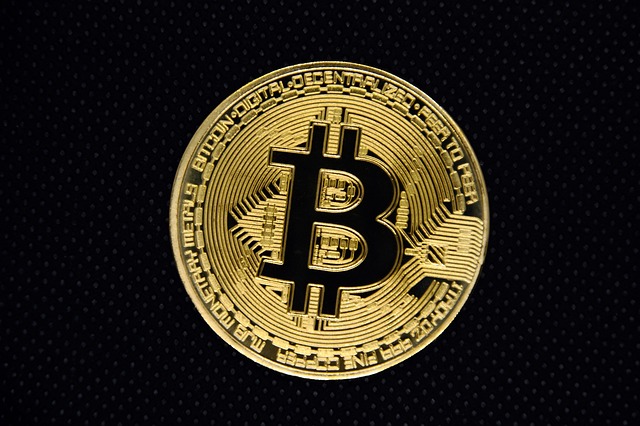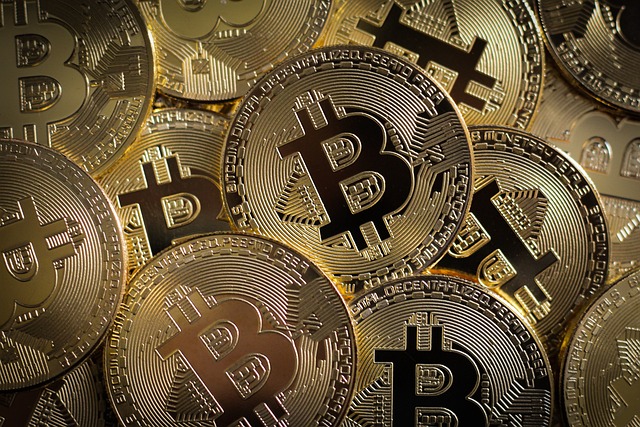Stocks vs. DeFi: Which Investment Holds More Promise?
Stocks vs. DeFi: Which Investment Holds More Promise?

Stocks and DeFi: A Comparative Analysis
Despite their differences, stocks and DeFi both offer unique opportunities for investors. Stocks, which are shares of ownership in a publicly traded company, have long been a popular investment option. They provide investors with the chance to participate in the success of established corporations and potentially earn dividends. With stocks, investors have the advantage of being able to choose from a wide range of companies across various industries, allowing for diversification in their investment portfolios. Additionally, stocks are regulated by government bodies, providing a level of oversight and protection for investors.
On the other hand, DeFi, which stands for decentralized finance, is a relatively new and rapidly evolving investment landscape. DeFi operates on the blockchain, utilizing smart contracts to create automated financial applications and protocols. Unlike stocks, DeFi is not tied to traditional financial institutions or centralized intermediaries, offering a decentralized and permissionless environment for investors. This decentralization provides individuals with more control over their investments and eliminates the need for intermediaries, potentially reducing transaction fees and increasing efficiency. Plus, with DeFi, investors have access to a wide range of financial products such as lending, borrowing, and yield farming, all within a single ecosystem.
Understanding Stocks as an Investment
Stocks are a widely recognized investment option that allows individuals to buy ownership shares of publicly traded companies. When you invest in stocks, you become a shareholder and have the potential to benefit from the company’s growth and success. This means that as the value of the company’s shares increases, so does the value of your investment. Stocks offer investors the opportunity to participate in the financial performance of various industries and companies, providing a chance for capital appreciation and potential dividends.
One of the key advantages of investing in stocks is the ability to diversify your portfolio. By investing in different companies across various industries, you can spread out your risk and potentially minimize losses. Additionally, stocks offer liquidity, meaning that it is relatively easy to buy and sell shares in the stock market. This allows investors to have access to their funds and make changes to their investments as per their financial goals and market conditions. However, it is important to note that investing in stocks also comes with inherent risks, including market volatility and the possibility of losing your initial investment.
Understanding DeFi as an Investment
As the world of investments continues to evolve, decentralized finance (DeFi) has emerged as an intriguing option for investors. DeFi leverages blockchain technology to offer a range of financial services without the need for intermediaries like banks.

One significant advantage of DeFi as an investment is its accessibility. Traditional financial institutions often impose barriers to entry, making it challenging for individuals with limited resources to participate fully. In contrast, DeFi eliminates these barriers by leveraging blockchain technology. Anyone with an internet connection and a digital wallet can engage in DeFi activities. This accessibility expands the investment landscape and empowers individuals who were previously excluded from traditional investment avenues. However, it’s important to note that while DeFi offers exciting prospects, it also comes with its own unique risks and considerations that investors must carefully evaluate.
Risk and Volatility: Stocks vs. DeFi
While both stocks and DeFi investments come with their own set of risks and volatility, they differ in terms of the nature and magnitude of these fluctuations. Stocks are influenced by various factors such as economic conditions, company performance, and market sentiment. As a result, they can experience significant price swings, especially during times of economic uncertainty. For investors, this means that the value of their stock holdings can rapidly fluctuate, potentially leading to substantial gains or losses.
On the other hand, the volatility in the decentralized finance (DeFi) sector is often driven by factors such as market sentiment, regulatory changes, and technological advancements. Unlike traditional stocks, DeFi investments are not tied to specific companies but rather to decentralized networks and protocols. This can introduce a different level of risk, as the value of DeFi assets can be more susceptible to market manipulation and sudden changes in investor sentiment. As the DeFi space is relatively new and evolving rapidly, investors should be prepared for higher volatility and the potential for both substantial gains and losses in their portfolios.
Liquidity and Accessibility: Stocks vs. DeFi
When it comes to liquidity and accessibility, stocks and DeFi offer different advantages and challenges. In the stock market, buying and selling stocks is relatively easy, thanks to the presence of numerous stock exchanges and brokerage firms. Investors can easily access their stock portfolio and execute trades through online platforms, making it convenient to enter or exit positions whenever desired. Additionally, stocks are considered highly liquid investments, with a large number of buyers and sellers actively participating in the market every day, resulting in ample trading volume. This liquidity allows investors to easily buy or sell stocks without significantly impacting their prices.
On the other hand, DeFi introduces a different level of accessibility and liquidity. DeFi, or Decentralized Finance, operates on blockchain technology and enables individuals to engage in various financial activities, such as lending, borrowing, and trading, without the need for intermediaries like traditional banks. This decentralized nature of DeFi provides accessibility to anyone with an internet connection and a compatible digital wallet, bypassing the need for intermediaries or cumbersome paperwork. However, the liquidity of DeFi assets can vary depending on the specific protocol or platform. Some DeFi assets may have lower liquidity than stocks, especially in emerging or niche markets, which could potentially impact the ability to buy or sell assets quickly without significant slippage. Nonetheless, the continuous growth and innovation in the DeFi space are steadily improving liquidity and accessibility for investors.
Returns and Profit Potential: Stocks vs. DeFi
Stocks and DeFi both offer different opportunities for investors when it comes to returns and profit potential. In the world of stocks, the potential for returns is often based on the performance of the underlying company. Investors can choose to invest in established companies with a track record of profitability, or they can take a risk and invest in promising start-ups with the hope of striking gold. The return on investment in stocks is typically tied to the company’s growth, earnings, and dividend payments. However, it’s important to remember that stocks can also be subject to market fluctuations and external factors that may impact their value.
On the other hand, DeFi, or Decentralized Finance, offers a different avenue for potential returns and profits. DeFi is a rapidly growing sector that utilizes blockchain technology to provide financial services without the need for intermediaries like banks. In this space, investors can participate by lending, borrowing, or staking their cryptocurrencies. The potential for profit in DeFi comes from the interest earned on lending or the appreciation of the invested tokens. However, it’s crucial to note that DeFi is a relatively new and evolving field, and therefore carries certain risks, such as smart contract vulnerabilities and regulatory uncertainties.
In conclusion, both stocks and DeFi have their own unique aspects when it comes to returns and profit potential. While stocks offer opportunities to invest in established companies or promising start-ups, DeFi offers a decentralized alternative for earning returns through lending and staking. Investors should carefully consider their risk tolerance, market knowledge, and investment goals before deciding which avenue to pursue.
Regulation and Oversight: Stocks vs. DeFi
When it comes to the regulation and oversight of stocks and DeFi, there are significant differences to consider. In the world of traditional stocks, there are well-established regulatory bodies such as the Securities and Exchange Commission (SEC) that monitor and enforce compliance with a set of rules and regulations. These regulations are in place to protect investors and ensure fair and transparent trading practices.
On the other hand, DeFi operates in a more decentralized and unregulated environment. While this allows for greater flexibility and innovation, it also poses certain risks. The absence of a central authority means that there is no regulatory body overseeing DeFi platforms. This lack of oversight can make investors more susceptible to fraud and scams. However, it also offers an opportunity for individuals to participate in a financial system that is not constrained by traditional regulations.
Diversification and Portfolio Management: Stocks vs. DeFi
Diversification and portfolio management are essential strategies for investors looking to minimize risk and maximize returns. Both stocks and DeFi offer unique opportunities for diversification, but the approaches differ significantly.
When it comes to stocks, diversification can be achieved by investing in a variety of industries, sectors, and geographic regions. By spreading investments across different companies, investors can offset potential losses in one area with gains in another. This strategy helps mitigate the impact of market fluctuations and can lead to more stable long-term returns. However, managing a stock portfolio requires ongoing monitoring and research to ensure that the mix of investments remains diverse and aligned with the investor’s risk tolerance and financial goals.
On the other hand, DeFi opens up opportunities for diversification by investing in different decentralized finance protocols and platforms. DeFi protocols offer a range of investment options, such as lending and borrowing, yield farming, and liquidity provision. By spreading investments across various DeFi projects, investors can achieve diversification within the rapidly evolving world of decentralized finance. However, it’s important to note that the DeFi space is relatively new and still maturing, which means that risks and uncertainties exist, including smart contract vulnerabilities and regulatory concerns.

In conclusion, diversification and portfolio management are crucial aspects of investing in both stocks and DeFi. While stocks provide opportunities for diversification across industries and geographic regions, DeFi allows for diversification within the realm of decentralized finance protocols and platforms. Investors in both markets must remain vigilant in their portfolio management strategies, regularly assessing and rebalancing their investments to ensure alignment with their goals and risk tolerance.
Long-term vs. Short-term Investments: Stocks vs. DeFi
When it comes to investing, one important consideration is the time horizon of your investment strategy. Both stocks and decentralized finance (DeFi) offer opportunities for long-term and short-term investments, but there are some key differences to be aware of.
In the stock market, long-term investments typically involve buying shares of established companies with a proven track record of stability and growth. These investments are often held for several years or even decades, with the goal of generating substantial returns over time. On the other hand, short-term investments in stocks involve buying and selling shares within a shorter time frame, such as days, weeks, or months. This strategy requires frequent monitoring of market trends and taking advantage of short-term price fluctuations to make quick profits.
• Long-term investments in stocks involve buying shares of established companies with a proven track record of stability and growth.
• These investments are held for several years or even decades, with the goal of generating substantial returns over time.
• Short-term investments in stocks involve buying and selling shares within a shorter time frame, such as days, weeks, or months.
• This strategy requires frequent monitoring of market trends and taking advantage of short-term price fluctuations to make quick profits.
In contrast, decentralized finance (DeFi) offers a different approach to investing. DeFi refers to financial applications built on blockchain technology that aim to provide traditional financial services without intermediaries. In the world of DeFi, long-term investments can include staking cryptocurrencies or participating in liquidity pools. Staking involves locking up your cryptocurrency holdings for an extended period to support network security and earn rewards. Liquidity pools allow users to contribute their assets into a pool that provides liquidity for decentralized exchanges and earn fees in return.
On the other hand, short-term investments in DeFi can involve yield farming or arbitrage opportunities. Yield farming is the practice of leveraging various protocols to maximize returns by earning multiple tokens simultaneously through lending, borrowing, or providing liquidity. Arbitrage involves profiting from price differences between different platforms by quickly buying low on one platform and selling high on another.
It’s important to note that both long-term and short-term investments come with their own set of risks. Long-term investors may face market volatility over extended periods but have the potential for higher returns if they choose well-performing companies. Short-term investors must be prepared for rapid market changes and need excellent timing skills to profit from short-lived opportunities.
In conclusion, whether you choose stocks or DeFi for long- or short-term investment strategies depends on your risk tolerance, investment goals, and understanding of each market’s dynamics. Stocks offer stability and growth potential over time but require patience and research skills. On the other hand, DeFi provides opportunities for both long-term staking and short-term yield farming or arbitrage but requires a deep understanding of blockchain technology and constant monitoring of market trends. Ultimately, diversifying your investment portfolio with a combination of both traditional stocks and emerging DeFi assets may offer the best balance between risk and reward.
Innovation and Disruption: Stocks vs. DeFi
Innovation and disruption are two key factors that distinguish stocks and DeFi as investment options. On one hand, the stock market has long been a symbol of traditional investing, with established companies and familiar industries. However, DeFi, which stands for decentralized finance, represents a newer, more cutting-edge approach to investment. It is built on blockchain technology, enabling peer-to-peer transactions and eliminating the need for intermediaries like banks. This breakthrough innovation has the potential to disrupt traditional financial systems, offering greater transparency and accessibility to a wider range of investors.
While stocks have been around for centuries, their inherent structure may limit the degree of innovation and disruption they can bring. Companies listed on the stock market may introduce new products or services, but their operations are largely governed by established frameworks and regulations.

What is the difference between stocks and DeFi?
Stocks refer to ownership shares in a company, while DeFi (Decentralized Finance) refers to a range of financial applications built on blockchain technology.
How do stocks and DeFi compare as investments?
Stocks are more traditional and have a longer history, while DeFi is a relatively new and innovative investment option.
Are stocks or DeFi more volatile and risky?
Both stocks and DeFi investments can be volatile and carry risks. However, DeFi investments are often considered to be more volatile due to their decentralized nature.
Which investment option offers better liquidity and accessibility?
Stocks generally have higher liquidity and are more accessible to a wider range of investors. DeFi investments may have lower liquidity and can be more challenging to access for those unfamiliar with the technology.
Can I expect higher returns and profit potential from stocks or DeFi?
Both stocks and DeFi have the potential for high returns, but the profit potential may vary depending on the specific investments and market conditions.
How are stocks and DeFi regulated and overseen?
Stocks are regulated by government authorities and subject to oversight by stock exchanges. On the other hand, DeFi operates in a decentralized manner and does not have centralized regulation or oversight.
Is diversification and portfolio management different for stocks and DeFi?
Diversification and portfolio management strategies can be applied to both stocks and DeFi investments. However, the specific approach may differ due to the unique characteristics of each investment type.
Are stocks or DeFi better suited for long-term or short-term investments?
Stocks are commonly chosen for long-term investments, while DeFi investments are often associated with shorter-term opportunities. However, the suitability may vary depending on individual goals and risk tolerance.
How do stocks and DeFi contribute to innovation and disruption?
Stocks have historically been the primary investment avenue for innovations, while DeFi represents a new wave of financial technology that has the potential to disrupt traditional financial systems and services.
Todays Featured Product:
Buy, exchange and grow your crypto securely with a Ledger hardware wallet, combined with the Ledger Live app. It’s never been easier to keep your crypto safe and accessible. Buy direct from Ledger.com and get todays Special Offers Here.




